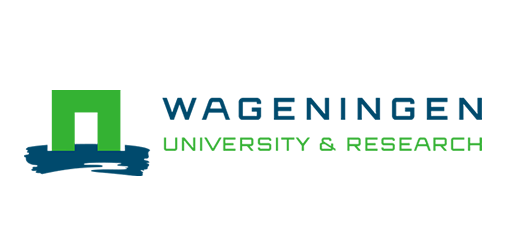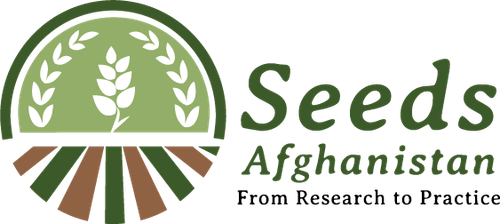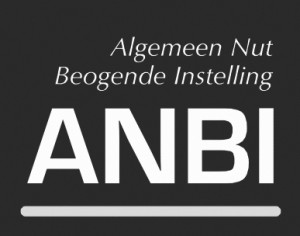Locally Made Peanut Paste Against Malnutrition
Healthy nutrition for malnourished children
The Peanut Pasta project in Mazar-e Sharif, Afghanistan, focuses on combating malnutrition through local production of therapeutic peanut paste (RUTF). The primary target group of the Peanut Pasta Project are domestic and foreign NGOs operating in Afghanistan that currently purchase peanut paste from large organizations such as the United Nations or Unicef. The aim is to sell 80% of the production to these NGOs and distribute the remaining 20% within their own organization.
With this 20%, the project directly targets malnourished children and their families, especially during the first 1,000 days of a child’s life. Mothers of these children also receive training in nutrition and hygiene to achieve long-term improvements in their children’s health.
Growth deficiency due to malnutrition
In Afghanistan, many young children suffer from severe malnutrition. This is due to a lack of nutritious food and weak food security. Malnutrition leads to growth retardation, reduced resistance to disease and permanent developmental problems, especially in the crucial first 1,000 days of life.
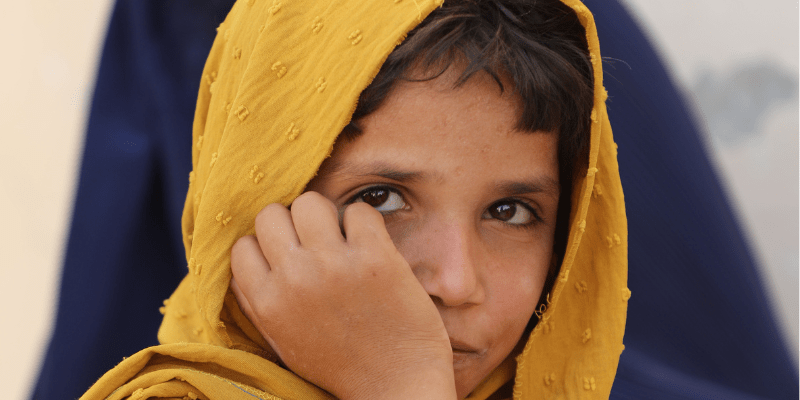
A holistic approach
It is essential to address this issue, as the first years of life determine a child’s physical and cognitive development. Without timely intervention, children can suffer lifelong health problems and fail to reach their full potential. Local production of peanut paste not only combats malnutrition but also strengthens the Afghan economy and reduces dependence on expensive imports.
The unique approach of Village of Peace
Instead of expensive imports, the paste is produced with local ingredients and Afghan staff, strengthening both food security and the economy.
The project focuses on two core strategies:
- Production and distribution: 80% of peanut paste is sold to NGOs supporting malnourished children, while 20% is distributed directly to vulnerable families through their own programs.
- Education and sustainability: Mothers receive training in nutrition, hygiene and sustainable agriculture, enabling families to become structurally self-reliant and reducing malnutrition in the long term.
This approach ensures that children get the essential nutrients they need and that the local community benefits from employment and economic growth.
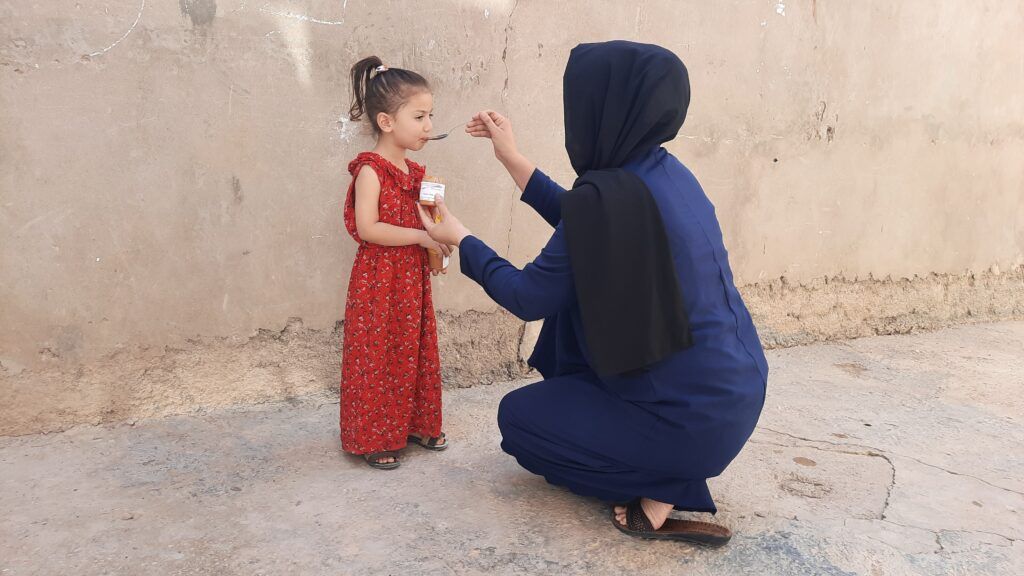
The power of peanut paste
The peanut paste produced in our factory is a Ready-to-Use Therapeutic Food (RUTF) – designed to quickly and effectively treat severely malnourished children with an energy-dense, ready-to-eat nutritional solution.
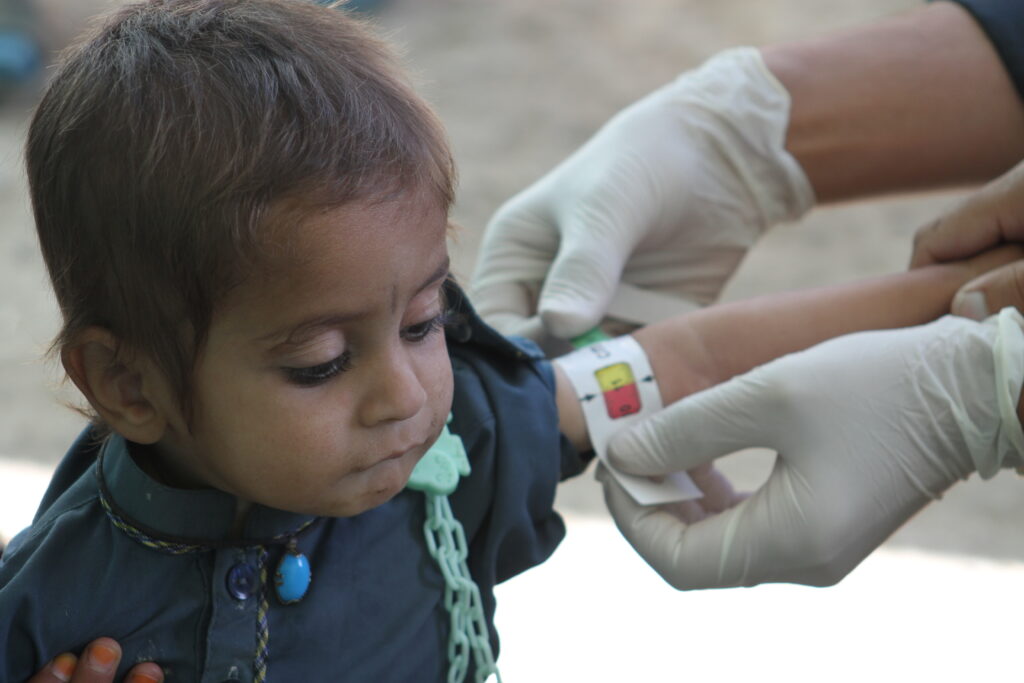
Monitoring growth
Mid-Upper Arm Circumference (MUAC) is a simple and quick measurement method that measures the circumference of the upper arm to determine malnutrition in children.
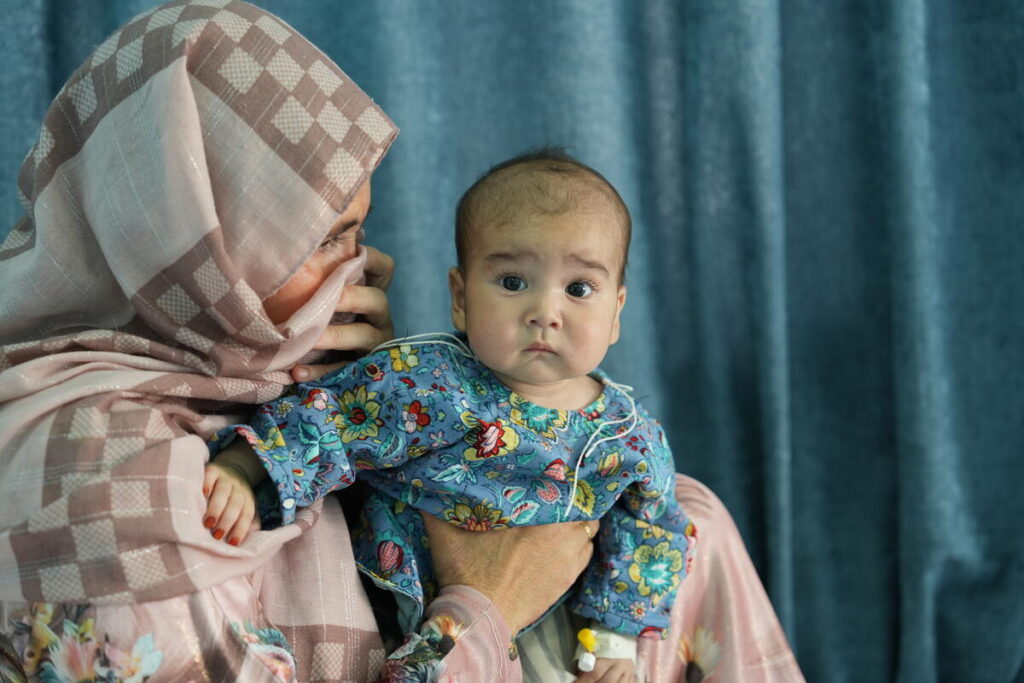
Support for Mothers
Mothers receive training in nutrition, hygiene, and sustainable agriculture, enabling families to become structurally self-reliant and reducing malnutrition in the long term.
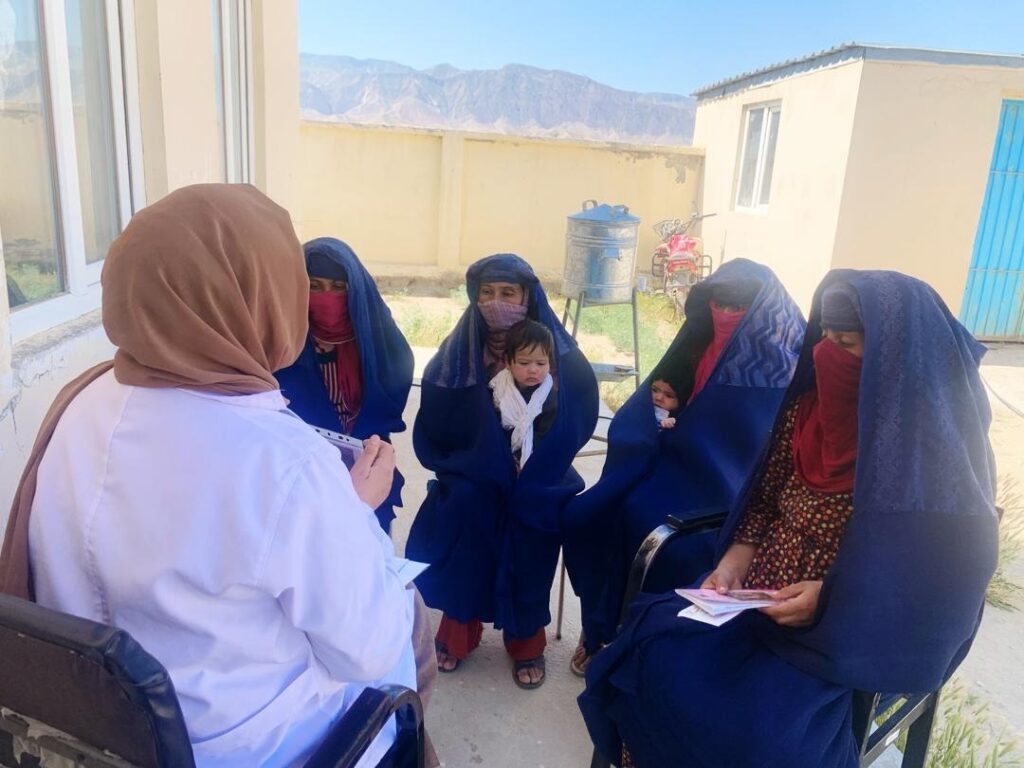
Amina, a single mother with three children, saw her family suffer from extreme malnutrition.
“Through the Peanut Paste Project, my youngest son got access to therapeutic peanut paste, which quickly improved his health. I didn’t know how to keep my children healthy, but now I have hope and knowledge to give them a better future.”
OUR APPROACH
Since 2014, Village of Peace has been training Afghans to rebuild their country. Our approach is holistic. Naturally, we provide food, medical care, and shelter where necessary, but the focus is on education, information, growing food, and finding a job. Our goal: a healthy and independent life for all single women and their children.
Scientifically based impact assessment
To ensure that our training courses and projects are adapted as effectively as possible to the local situation and target group, we work closely with Wageningen University & Research (WUR) and SEEDS Afghanistan. Using scientific research, they measure the effectiveness and impact of our programs and provide advice on possible improvements. This is how we work together to achieve a sustainable impact on food security and quality of life in Afghanistan.
Why Village of Peace?
The Peanut Pasta Project saves lives by addressing malnutrition among young children in Afghanistan with local production of nutritious peanut paste (RUTF). This not only provides immediate relief, but also strengthens the local economy and reduces dependence on imports. By training mothers in nutrition and hygiene, the project ensures sustainable impact. Your support helps malnourished children, creates jobs and builds a healthier future for whole families.
“Our vision for Village of Peace’s peanut paste factory in Afghanistan: Where peanut paste not only nourishes, but also brings hope and sustainable change.”
From malnutrition to self-reliance

In Afghanistan, widows and orphans are at the bottom of society. It is a daily struggle for them to find food, resulting in malnutrition. We help these women to change their situation. Often, this means providing emergency aid first.
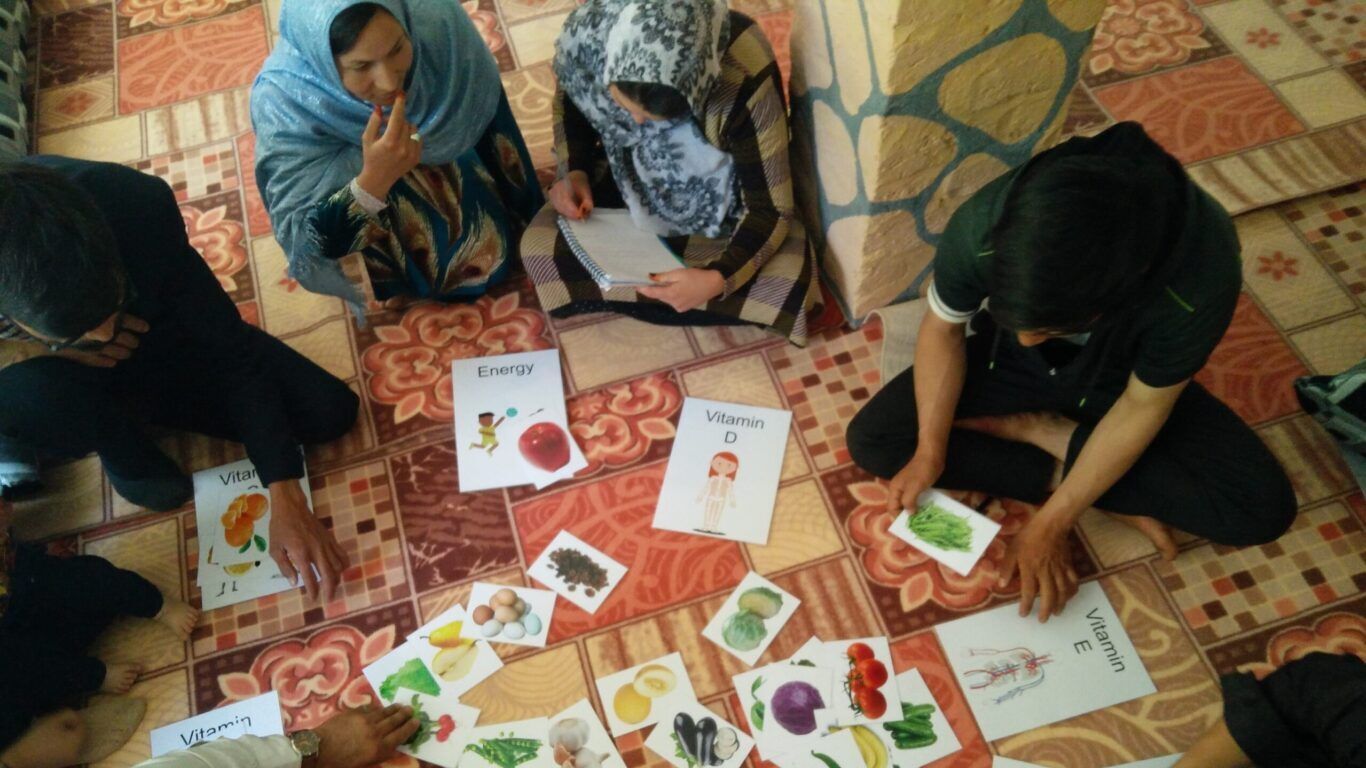
We then train them through practical education and help them build a food-secure existence.
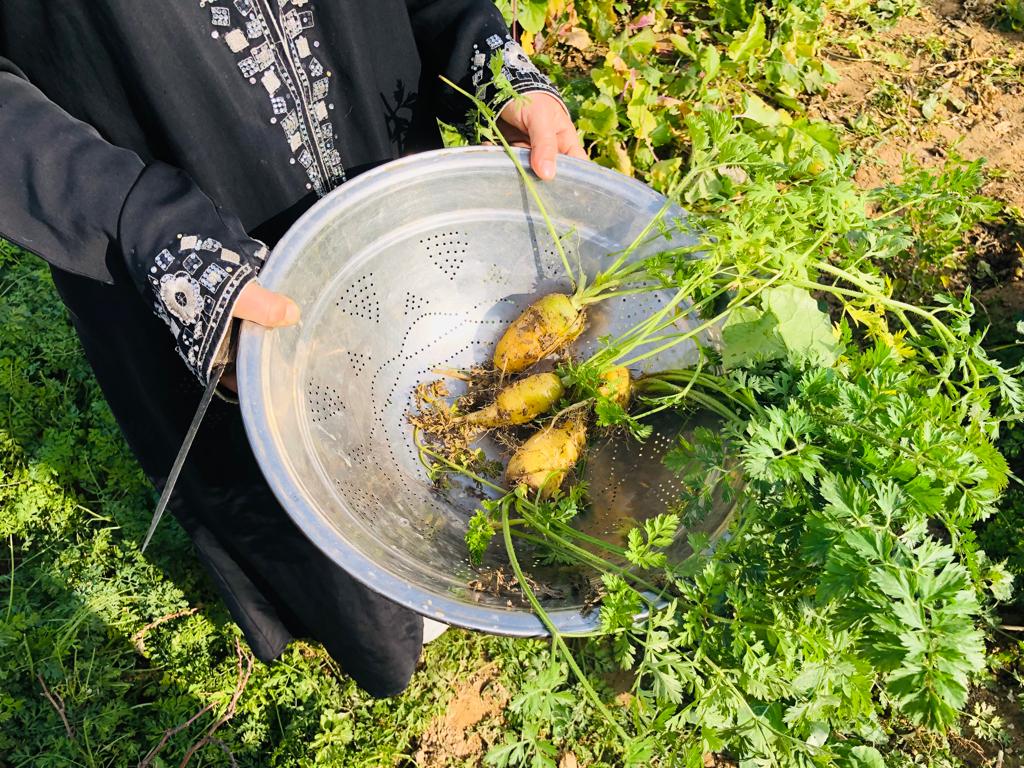
This enables them to work on their self-reliance and regain their place in Afghan society. Food security is the springboard to a healthy and independent life, not only for the widow and her children, but also for her immediate network. In this way, she ultimately makes a difference locally.



